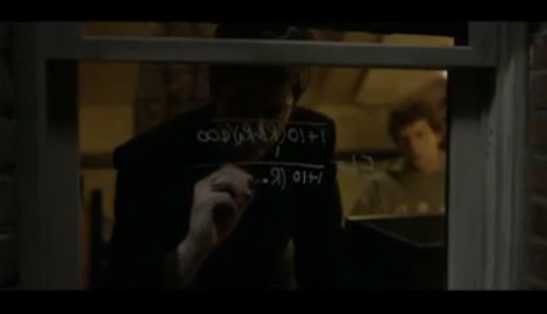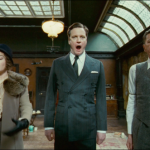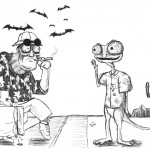
Within a Harvard dorm, two college friends will embark on a journey that will ultimately define their relationship and lead to a discovery worth billions.
How much equity is in popularity contests? Apparently, the answer is in the neighborhood of 15 billion. The Social Network was a snarky dialogue driven film allegedly based on the two principle co-founders of Facebook, Mark Zuckerberg and Eduardo Saverin. When Zuckerberg’s jealous rage and obsession with college fraternities got out of control, academic probation led to the creation of Facebook, a networking website that later established Zuckerberg as the world’s youngest billionaire. Unfortunately, his ascension wasn’t without a few casualties in friendship. Zuckerberg may have redefined networking but in the process alienated every one around him including his best friend, Eduardo Saverin.
Directed by David Fincher, the characters in the Social Network were reduced to personalities within one long internalized dialogue written by Aaron Sorkin. The seamless dialogue was delivered so that words flowed from one person to the next as if one character finished the other person’s thought. Jesse Eisenberg epitomized Zuckerberg’s one track mind and his propensity to act without fear of consequence. He was every bit as convincing as a hopelessly jaded Jewish kid whose explosive insecurities needlessly damaged his relationships. It was hard to empathize with Zuckerberg. He wanted to be sociable. He just wasn’t any good at it. Eisenberg was more than effective at making that point. Perhaps not every thing in life such as popularity can or should be rationalized. Andrew Garfield played the film’s protagonist, suave ambitious business oriented co-founder Eduardo Saverin. It’s extremely difficult to believe what really happened to Saverin and Zuckerberg’s friendship. Garfield depicted Saverin with naive loving nature for his friend, so much that it ultimately was his downfall. Can the viewer buy that he was this naive the entire time? Difficult to say. It was Saverin’s equation that served as Facebook’s search engine. Unlike Zuckerberg, Saverin believed in the idea of beating the odds in life with the terms placed upon them. He jumped into the monotonous games of sororities. Saverin also had something Zuckerberg desired, money. Enter the flamboyant and opportunistic Sean Parker played by Justin Timberlake. No stretch of the imagination, Timberlake played a rock star. He tipped the scales in the favor of leaving the East Coast with the powerful seductive financial strategy: get rich now. Only problem, hedge funds required Zuckerberg to do something very underhanded. The movie needed no visual aids for the ensuing blood bath of scathing insults. By the end of the settlement, neither Zuckerberg nor Saverin could look at each other after all the emotional damage they inflicted upon each other.
Director David Fincher’s direction, camerawork, and Trent Reznor’s incredible soundtrack encapsulated this fantastical story from the cold Harvard dorms to the warmth of the California sunshine that ultimately ended in the cold unfeeling glass room for the settlement. It was a seductive, powerful fairytale and yet, by the end the audience almost felt betrayed by an unfulfilled promise that left one wanting more. What was the real motivation behind Facebook? It’s up to you to decide.
In my never ending tribute to George Thorogood’s One Bourbon, One Scotch, and One beer I am giving the Social Network a very satisfying bourbon because the intelligent aggressive dialogue, the precision and execution by the actors, and the flawless direction to captivate this bizarre tale of one young man’s ride to billions.
Cheers,
Ron




















Nice Review! I am really looking forward to this film!
Super! I love these delicate posts.
Finally something fresh and new that make sense! I would like to see more about this and that is what I’m going to do.
very good and cool,thank you for your sharing.
This is very useful articles for web designers like me. I read it and find it very useful.